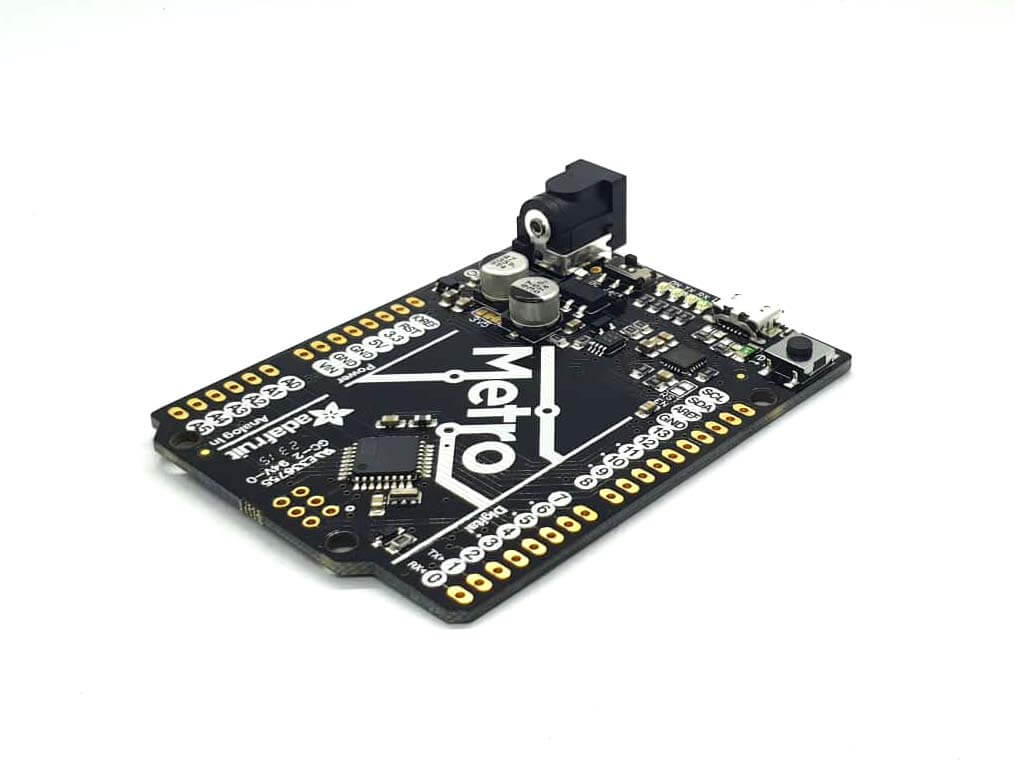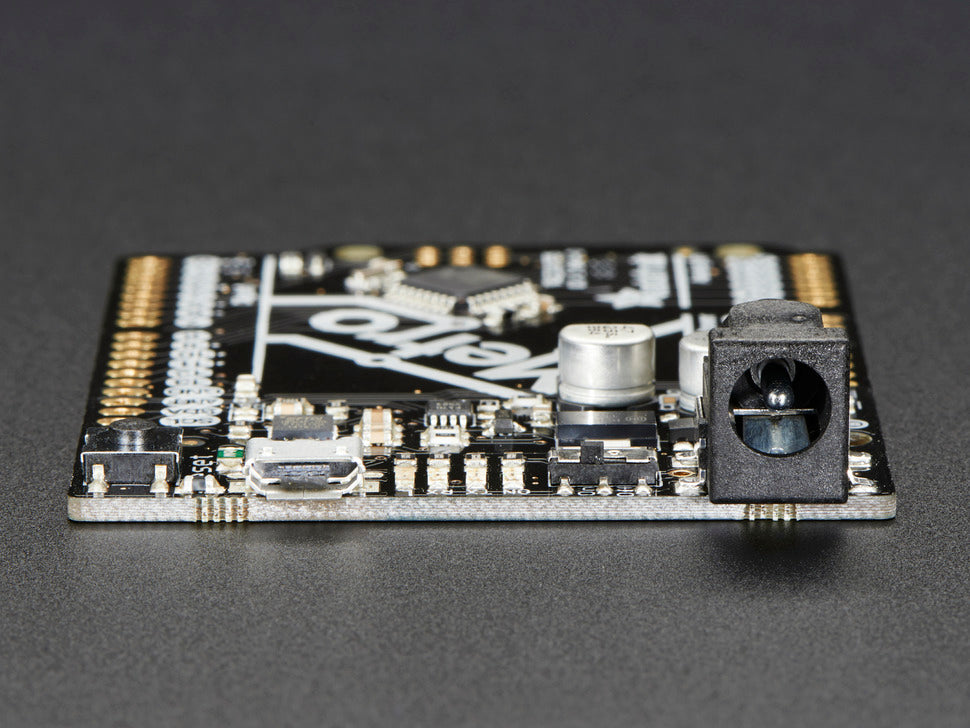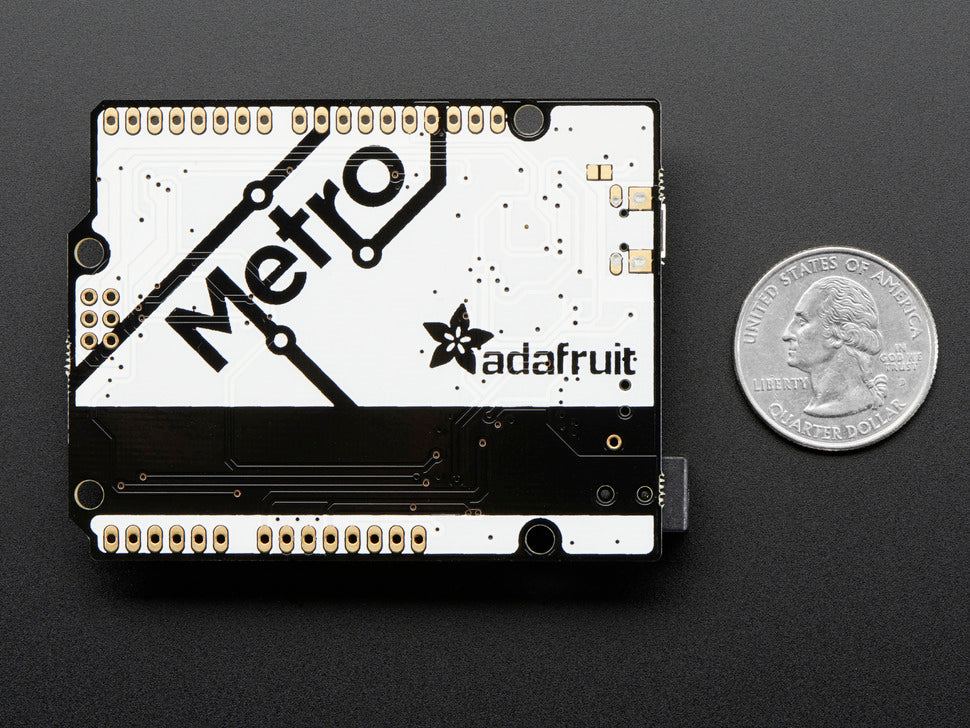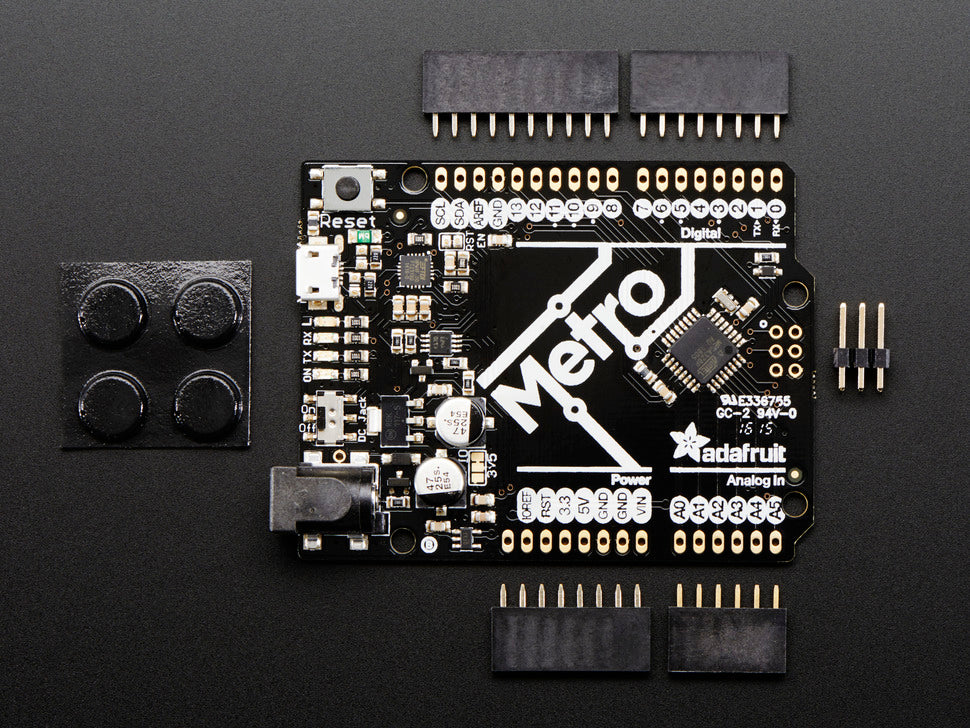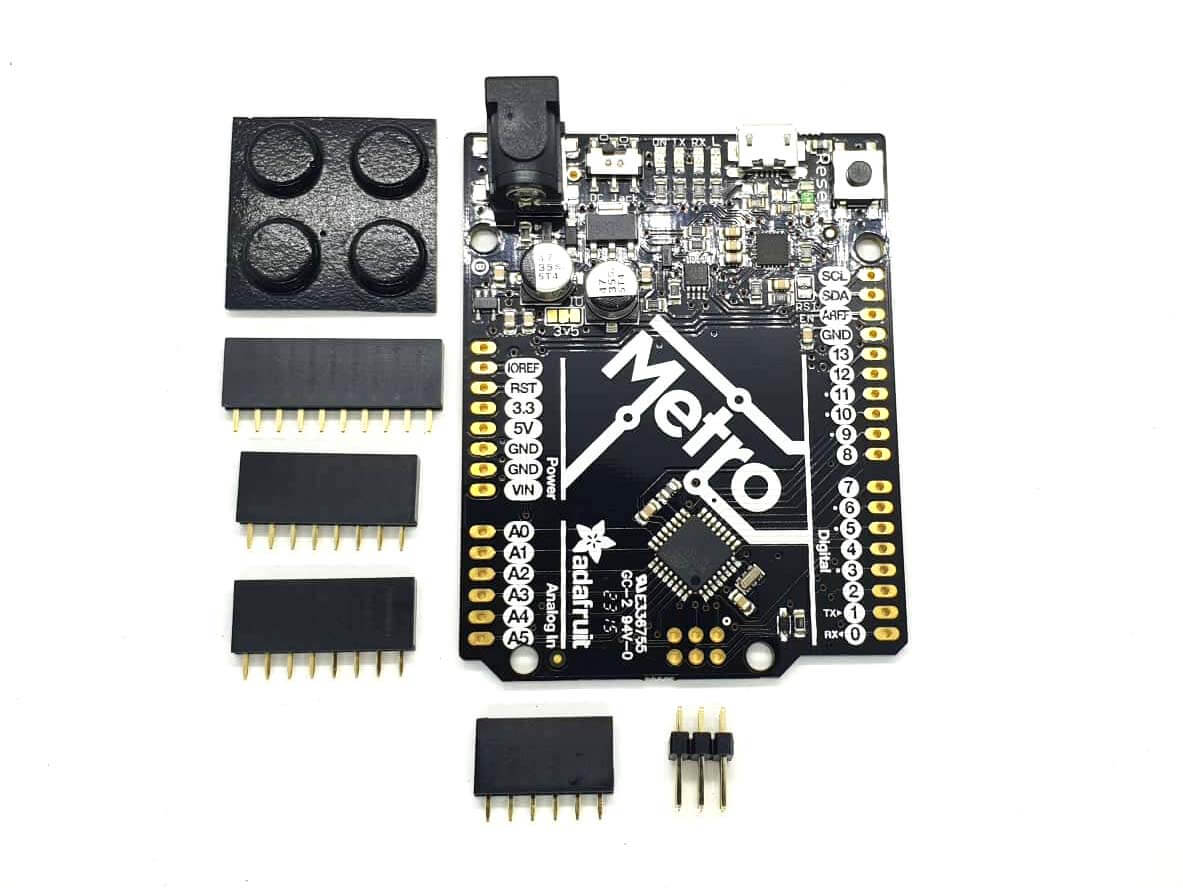Metro 328 Adafruit without Headers ATmega328 - The Metro 328 Adafruit is a microcontroller board based on the ATmega328 microcontroller. It is designed for use with the Arduino programming environment and can be used to control a wide variety of electronic projects. One of the unique features of the Metro 328 is that it does not come with headers pre-installed, allowing for greater flexibility in how the board is used.
How To Start Metro 328?
To get started with the Metro 328, you will first need to install headers onto the board. This can be done by soldering male headers onto the board's female headers. Once the headers are installed, you can use the Metro 328 with a variety of Arduino shields and other accessories.
Programming Of Metro 328
To program the Metro 328, you will need to have the Arduino software installed on your computer. Once the software is installed, you can use it to write and upload code to the board. The Arduino software uses a simplified version of the C programming language, making it easy for beginners to get started with microcontroller programming.
Using the Metro 328 with a Breadboard
One of the most popular ways to use the Metro 328 is with a breadboard. A breadboard allows you to easily connect electronic components to the board without the need for soldering. To use the Metro 328 with a breadboard, simply insert the headers into the breadboard and connect the components as desired.
The Metro 328 Adafruit is a versatile microcontroller board that can be used to control a wide variety of electronic projects. Its unique feature of not having headers pre-installed allows for greater flexibility in how the board is used. With the Arduino software and a breadboard, even beginners can easily get started with microcontroller programming.
We sure love the ATmega328 here at Adafruit, and we use them a lot for our own projects. The processor has plenty of GPIO, Analog inputs, hardware UART SPI and I2C, timers and PWM galore - just enough for most simple projects. When we need to go small, we use a Pro Trinket 3V or 5V, but when size isn't as much of a concern, and a USB-serial converter is required, we reach for an Adafruit METRO.
METRO is the culmination of years of playing with AVRs: we wanted to make a development board that is easy to use and is hacker friendly.
- ATmega328 brains - This popular chip has 32KB of flash (1/2 K is reserved for the bootloader), 2KB of RAM, clocked at 16MHz
- Power the METRO with 7-9V polarity protected DC or the micro USB connector to any 5V USB source. The 2.1mm DC jack has an on/off switch next to it so you can turn off your setup easily. The METRO will automagically switch between USB and DC.
- METRO has 20 GPIO pins, 6 of which are Analog in as well, and 2 of which are reserved for the USB-serial converter. There's also 6 PWMs available on 3 timers (1 x 16-bit, 2 x 8-bit). There's a hardware SPI port, hardware I2C port and hardware UART to USB.
- GPIO Logic level is 5V but by cutting and soldering closed a jumper, you can easily convert it to 3.3V logic
- USB to Serial converter, there's a hardware USB to Serial converter that can be used by any computer to listen/send data to the METRO, and can also be used to launch and update code via the bootloader
- Four indicator LEDs, on the front edge of the PCB, for easy debugging. One green power LED, two RX/TX LEDs for the UART, and a red LED connected to pin PB5
- Easy reprogramming, comes pre-loaded with the Optiboot bootloader, which is supported by avrdude and only uses 512 bytes.
- Beautiful styling by PaintYourDragon and Bruce Yan, in Adafruit Black with gold plated pads.
- Works with all Adafruit designed shields!
This version of the METRO 328 comes as a fully assembled and tested development board but without any headers attached. We do include some through-hole headers that you can solder on if you like, or you can solder wires or header directly to the breakout pads. We also include 4 rubber bumpers to keep it from slipping off your desk.
TECHNICAL DETAILS
- ATmega328 microcontroller with Optiboot (UNO) Bootloader
- USB Programming and debugging via the well-supported genuine FTDI FT231X
- Input voltage: 7-9V (a 9VDC power supply is recommended)
- 5V logic with 3.3V compatible inputs, can be converted to 3.3V logic operation
- 20 Digital I/O Pins: 6 are also PWM outputs and 6 are also Analog Inputs
- 6-pin ICSP Header for reprogramming
- 32KB Flash Memory - 0.5K for bootloader, 31.5KB available after bootloading
- 16MHz Clock Speed
- Compatible with "Classic" and "R3" Shields
- Adafruit Black PCB with gold plate on pads
- 53mm x 68.5mm / 2.1" x 2.7"
- Height (w/ barrel jack): 13mm / 0.5"
- Weight: 16.5g
- Derivative of "Arduino UNO R3 Reference design"
- Open source hardware files on github
Metro 328 Adafruit without Headers ATmega328
Metro 328 Adafruit without Headers ATmega328
Low stock: 8 left
Product Code
SKU:2466
Couldn't load pickup availability
